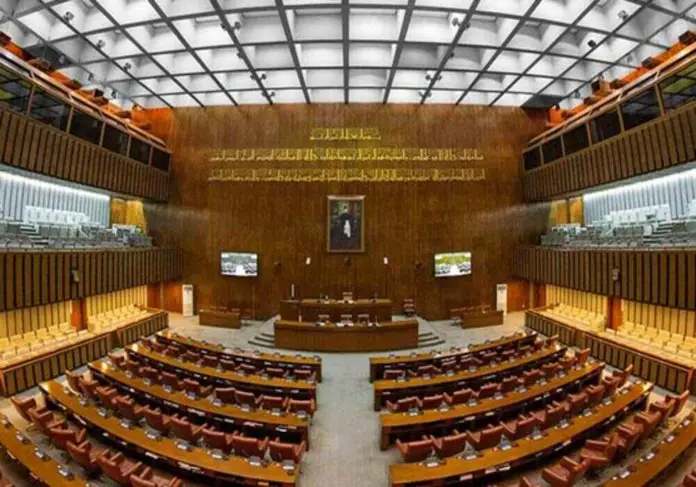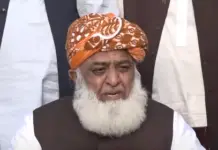In a heated speech, PPP leader Syed Yusuf Raza Gilani had announced stepping down as opposition leader in Senate earlier this week. He indirectly referred to his absence from the Senate session when he was among eight other opposition leaders who remained absent from the upper house of parliament on the very day when the crucial State Bank of Pakistan (Amendment) Bill was passed.
The opposition has a majority in the Senate. Passage of a bill about which the opposition was seen very aggressive on TV, in press talks, and which it had termed an attack on the economic sovereignty of the state, has seriously dented its credibility as the opposition.
Absence of Gilani from the upper house in such a crucial session cannot be excused because it was about the state and its economic affairs. But he turned up later and delivered an aggressive speech perhaps in a bid to show how concerned he was about the national interests, but actually that is not the case.
Gilani’s target were his critics as well as the Senate chairman whom he held responsible for the passage of State Bank of Pakistan (Amendment) Bill, and said that he had already sent his resignation to his party leadership and was no longer interested in being the opposition leader in Senate.
Meanwhile, the PPP media wing issued a statement and simply said that Chairman Bilawal Bhutto had refused to accept Gilani’s resignation.
Gilani did not dare put his resignation before the Senate chairman because it would have been accepted instantly. He, instead, opted to send it to his young party head, who would never want to lose the ‘Senate chairman’s seat’.
The whole episode speaks volumes of how Gilani reacted over the passage of the bill. But there is a mystery behind it: a political rivalry between the top clans of Multan city who are known for their religious and saintly backgrounds: Gilanis and Qureshis. Gilani’s political comeback might have been at stake in the area of his political birthplace following his absence from the Senate. It was now more about face-saving.
Gilani and Qureshi’s criticism of each other is a frequent occurrence in the parliament but in Multan city from where both started their political journey it matters the most. Gilani remained out of politics from 2013 until 2018 when his son Ali Haider Gilani was elected to the provincial assembly and thus they started returning to a strong position. Election of Ali Haider Gilani was a dent on Foreign Minister Shah Mahmood Qureshi’s political efforts in the area.
Later, PDM was formed and PPP Chairman Bilawal Bhutto Zardari was supposed to address a large gathering in Multan in 2020 but he contracted Coronavirus and went into isolation, and his sister Aseefa Bhutto Zardari visited the city and delivered her first speech to the large gathering that was managed by Gilani family. It was another dent that was disturbing for Qureshi, who had been in power for a long time. But Qureshi’s agony doubled when Syed Yousuf Raza Gilani, with the support of ‘many’, was elected as senator and later was made opposition leader in the Senate.
The return of Gilani family to a strong position in politics and finally election of Yousuf Raza Gilani as opposition leader in the Senate are developments that have put Qureshi in a weaker position in their political rivalry.
Last Sunday, after the passage of SBP (Amendment) Bill, Foreign Minister Shah Mahmood Qureshi humorously took a dig at Yousuf Raza Gilani. Taking advantage of the situation of being in Multan, Qureshi targeted Mr Gilani, saying that they expect the “same kindness” from them [the PPP] in the future as shown during the passage of the State Bank of Pakistan Bill in Senate. Qureshi’s words seriously hit Gilani, who in a face-saving bid, turned up in Senate and announced his resignation. The episode of resignation reached its well anticipated “end”, but horns are still locked between the two Pirs (spiritual leaders) of Multan.







